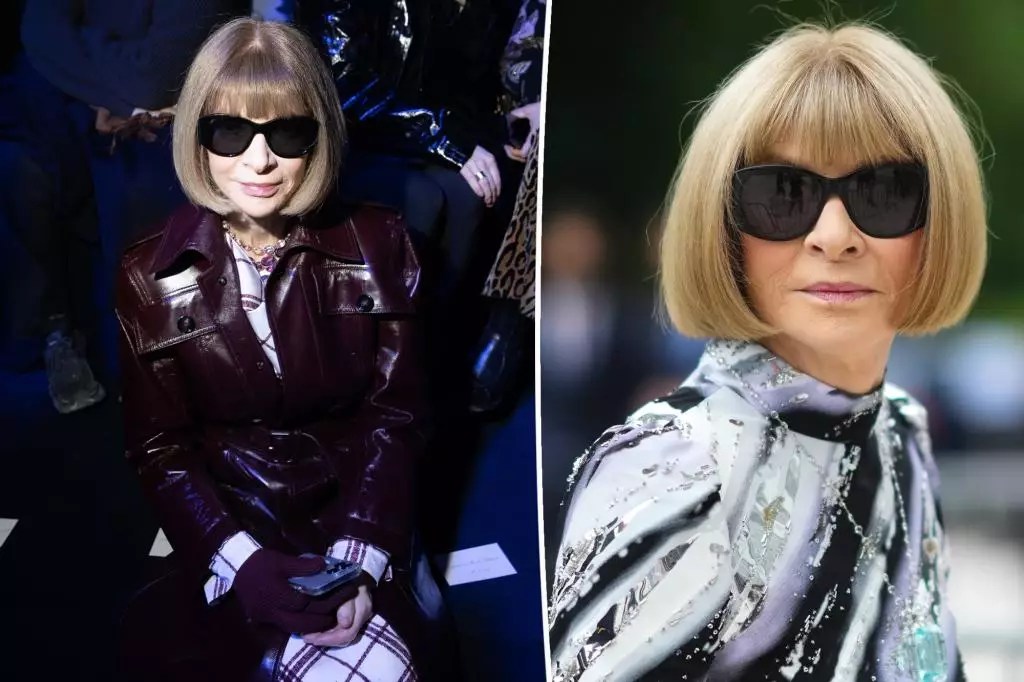Anna Wintour, the renowned editor-in-chief of Vogue and Chief Content Officer for Condé Nast, is no stranger to controversy. Known for her icy-cold demeanor and diva-like behavior, Wintour recently faced criticism from a disgruntled ex-employee at music magazine Pitchfork. In this article, we will delve into the alleged incident, explore Wintour’s history of controversial actions, and examine her impact on the fashion and media industries.
According to Allison Hussey, a former writer at Pitchfork, Wintour displayed a shocking lack of empathy and decency when delivering the news of staff layoffs. Hussey claimed that Wintour, seated indoors at a conference table, did not even remove her sunglasses during the conversation. This perceived lack of empathy from upper management left Hussey and her colleagues feeling appalled and disrespected.
This incident at Pitchfork is not the first time Wintour has been accused of diva-like behavior. In 2022, Page Six reported a momentary stunned expression on Wintour’s face when asked to present her ID at an off-Broadway show. This incident, coupled with her constant wearing of oversized sunglasses even indoors, has led to a reputation of being self-absorbed and disconnected from the realities of others.
Furthermore, in the realm of fashion, Wintour has been known to wreak havoc. During New York Fashion Week, she allegedly left designers scrambling by abruptly leaving the event to prepare for a Vogue event in London. Designers were forced to hasten their collections to showcase them to Wintour in advance. Such actions illustrate a disregard for the hard work and challenges faced by those in the fashion industry.
A Self-Deprecating Moment
Despite the controversies surrounding her, Wintour occasionally shows a glimmer of self-awareness and humor. During a cameo appearance on the Broadway show “Gutenberg! The Musical!”, Wintour introduced herself as “a very famous Broadway producer” before playfully referring to Anne Hathaway, her former assistant in “The Devil Wears Prada”, as her “assistant”. This moment showcased Wintour’s ability to poke fun at her own persona but raises questions about the sometimes questionable treatment of her subordinates.
Inspiration for “The Devil Wears Prada”
Wintour’s larger-than-life personality and leadership style were immortalized in the novel “The Devil Wears Prada” by Lauren Weisberger. The book, based on Weisberger’s own experiences as Wintour’s assistant at Vogue, explores the challenging and sometimes brutal world surrounding the fashion industry. The subsequent movie adaptation, starring Meryl Streep as the demanding editor-in-chief Miranda Priestley, further solidified Wintour’s image as an intimidating figure.
While Anna Wintour’s formidable persona and accomplishments in the fashion industry cannot be denied, it is crucial to scrutinize her leadership style responsibly. The alleged incident at Pitchfork and past controversies highlight the need for leaders to demonstrate empathy and respect for their employees. As the fashion and media industries continue to evolve, it is necessary to acknowledge both the successes and shortcomings of influential figures like Anna Wintour to ensure a more compassionate and inclusive future.


Leave a Reply